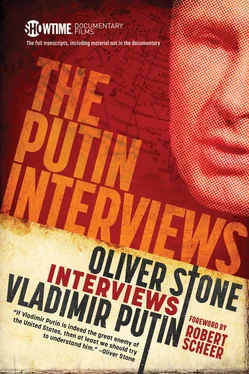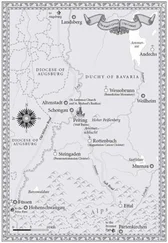Supporting: Putin refers here to the legacy of the Poroshenko-Yatsenyuk government which ended with Prime Minister Yatsenyuk’s resignation. See, “The Toxic Coddling of Petro Poroshenko,” Lev Golinkin, Foreign Policy (April 13, 2016). Retrieved at: http://foreignpolicy.com/2016/04/13/the-toxic-coddling-of-kiev-ukraine-poroshenko-yatsenuk/
Claim: Oliver Stone asks for confirmation whether Russia spent $51 billion to prepare for the Sochi Olympics. Putin replies that he doesn’t want to give the wrong number, and would tell him later.
Supporting: According to the Washington Post , the consensus figure is $50 billion, with qualifications. See, “Did the Winter Olympics in Sochi really cost $50 billion? A closer look at that figure,” Paul Farhi, the Washington Post (February 10, 2014). Retrieved at: https://www.washingtonpost.com/lifestyle/style/did-the-winter-olympics-in-sochi-really-cost-50-billion-a-closer-look-at-that-figure/2014/02/10/a29e37b4-9260-11e3-b46a-5a3d0d2130da_story.html
Background Information:
See, “In Russia, how one mainly Muslim region beat back radicalism,” Fred Weir, Christian Science Monitor (August 22, 2016). Retrieved at: http://www.csmonitor.com/World/Europe/2016/0822/In-Russia-how-one-mainly-Muslim-region-beat-back-radicalism
Claim: “the United States spends, this is published, $75 billion on intelligence, $52 billion of which is civilian.”
Supporting: According to publicly disclosed figures detailed in a report by the Congressional Research Service, Oliver Stone’s numbers are correct. See, “Intelligence Community Spending: Trends and Issues.” Anne Daugherty Miles, (November 8, 2016) Retrieved at: https://fas.org/sgp/crs/intel/R44381.pdf
Claim: “And [as we’ve discussed], the United States spends more than all other countries in the world combined.”
See, “Here’s how US defense spending stacks up against the rest of the world,” Ibid.
Background Information:
After September 11, 2001, Putin offered the US support in terms of intelligence information as well coordinating with central Asian nations to allow US forces to use former Soviet Union military bases. See, “9/11 a ‘turning point’ for Putin,” Jill Dougherty CNN (September 10, 2002). Retrieved at: http://www.edition.cnn.com/2002/WORLD/europe/09/10/ar911.russia.putin/index.html
Claim: “ But instead of that we saw the West expanding their political power and influence in those territories which we considered sensitive and important for us to ensure our global strategic security.”
After the collapse of the Soviet Union, NATO began a progressively eastward expansion. the See, “Did the West Break Its Promise to Moscow?” Uwe Klussmann, Matthias Schepp, Klaus Wiegrefe, Der Spiegel (November 26, 2009). Retrieved at: http://www.spiegel.de/international/world/nato-s-eastward-expansion-did-the-west-break-its-promise-to-moscow-a-663315.html
Background Information:
After the financial crisis of 2008, world economies scrambled to recover. Russia’s approach was unique to its own economy. See, “Russia’s Response to the Global Financial Crisis,” Pekka Sutela, Carnegie Endowment for International Peace (July 29, 2010) Retrieved at: carnegieendowment.org/files/russia_crisis.pdf
Background Information:
See, “Vladimir Putin finds his thrill on ‘Blueberry Hill,’” Shaun Walker, Independent (December 13, 2010). Retrieved at: http://www.independent.co.uk/news/world/europe/vladimir-putin-finds-his-thrill-on-blueberry-hill-2158697.html
Claim: “the former head of the KGB had opened to the US partners the whole system of surveillance in the American Embassy in Moscow”
Supporting: In December 1991, Vadim Bakatin, head of the KGB, turned over blueprints and bugging devices used to bug the US Embassy in Moscow. See, “KGB Gives US Devices and Plans Used to Bug Embassy,” Los Angeles Times (December 14, 1991). Retrieved at: http://articles.latimes.com/1991-12-14/news/mn-197_1_eavesdropping-devices
Claim: “On many occasions, repeatedly, I told the US, the European partners, the Georgian leadership—I asked them to prevent the escalation of this conflict.”
Supporting: In his editorial in the Financial Times, Russian Foreign Affairs Minister, Sergei Lavrov, notes that “hours before the Georgian invasion, Russia had been working to secure a UN Security Council statement calling for a renunciation of force by both Georgia and South Ossetians.” See, “Why Russia’s response to Georgia was right,” Sergei Lavrov, Financial Times (August 12, 2008). Retrieved at: https://www.ft.com/content/7863e71a-689e-11dd-a4e5-0000779fd18c
Claim: Referring to Georgian President Saakashvili, Putin remarks that his counterparts were saying “What do you expect, he’s mad?”
Supporting: See, “I Would Call Saakashvili Insane,” Benjamin Bidder, Spiegel Online (May 14, 2009). Retrieved at: http://www.spiegel.de/international/world/georgian-opposition-leader-zurabishvili-i-would-call-saakashvili-insane-a-624807.html
Background Information:
During his ten years as president of Georgia, Eduard Shevardnadze was plagued with accusations of running a corrupt government and economy, while at the same time he expressed a desire for Georgia to join NATO. See, “Shevardnadze Resigns as Georgian President” Fox News (November 24, 2003). Retrieved at: http://www.foxnews.com/story/2003/11/24/shevardnadze-resigns-as-georgian-president.html
Background Information:
The US was not pleased with Russia’s decision to offer Edward Snowden temporary asylum after he leaked classified information. See, “Defiant Russia Grants Snowden Year’s Asylum,” Steven Lee Myers, Andrew E. Kramer, the New York Times (August 1, 2013). Retrieved at: http://www.nytimes.com/2013/08/02/world/europe/edward-snowden-russia.html
Claim: Ukrainian opposition leader Viktor Yushchenko repeatedly asserted that he had been poisoned by political rivals.
Supporting: See, “Yushchenko Poisoned, Doctors Say” Deutsche Welle (December 12, 2004). Retrieved at: http://www.dw.com/en/yushchenko-poisoned-doctors-say/a-1425561
Background Information:
See: Ukraine protests after Yanukovych EU deal rejection,” Oksana Grytsenko, BBC (November 30, 2013). Retrieved at: http://www.bbc.com/news/world-europe-25162563
Claim: “Mr. Yanukovych didn’t leave to go abroad. He was in the country when his residence was taken.”
Supporting: President Yanukovych left Kiev for Ukraine’s second largest city Kharkiv, that was considered his eastern political base. See, “Ukraine crisis: Viktor Yanukovych leaves Kiev for support base,” Bonnie Malkin, The Telegraph (February 22, 2014). Retrieved at: http://www.telegraph.co.uk/news/worldnews/europe/ukraine/10655335/Ukraine-crisis-Viktor-Yanukovych-leaves-Kiev-for-support-base.html
Background Information:
Putin notes that losing the base in Sebastopol was not a threat because the new base at Novorossiysk was being commissioned. See, “Russia To Unveil New $1.4 Billion Black Sea Fleet Base Near Crimea,” Damien Sharkov, Newsweek (July 28, 2016). Retrieved at: http://www.newsweek.com/russia-unveil-new-14-bn-black-sea-fleet-base-four-years-484974
Читать дальше












